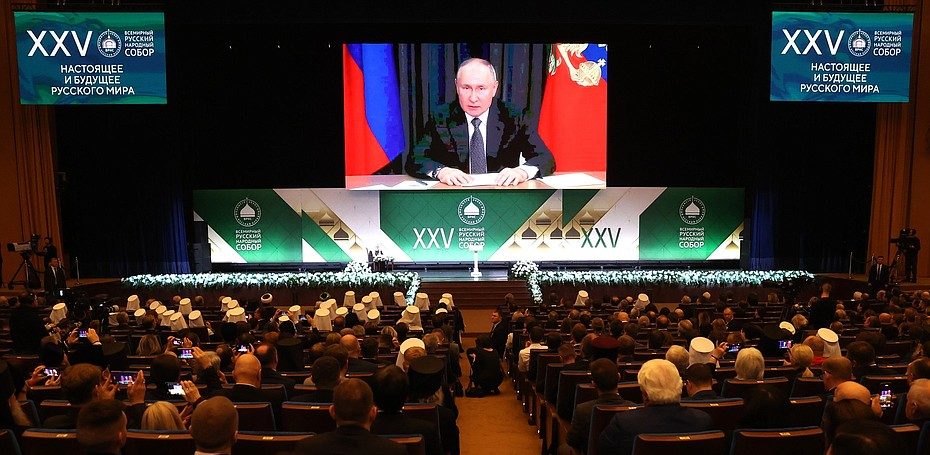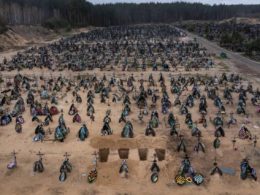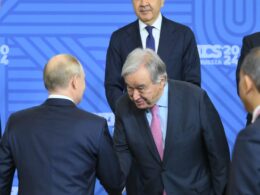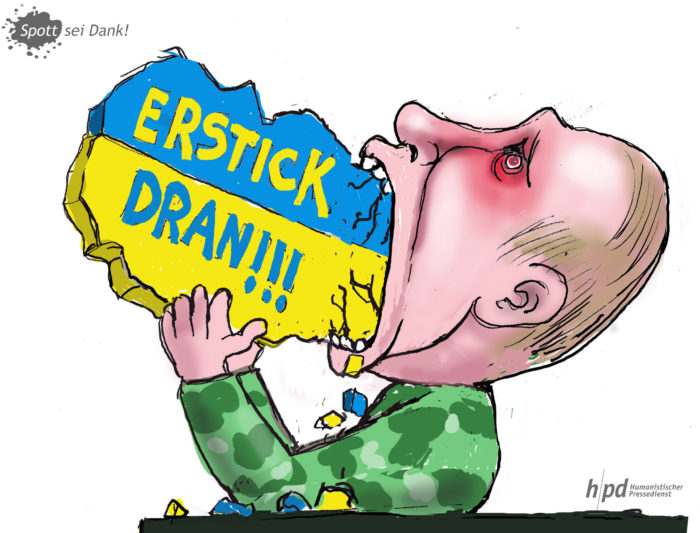During the World Russian People’s Council forum on 28 November, Putin addressed the participants and delivered a series of important statements, regrettably overlooked by much of the Western press despite their important implications.
In his earlier speech before the invasion, Putin mainly focused on Ukraine and Donbas. However, there’s a noticeable shift in this latest address as he outlines a more expansive vision, indicating aspirations to reshape the existing global order.
Putin initiated his discourse by appealing to the “supreme historical right” and a categorical statement affirming Russia as a distinctive “country-civilization.” He went on to articulate that Russia is actively challenging the “dictatorship of hegemony,” positing that its influence is gradually eroding and unraveling.
Concluding with a strong declaration, Putin positioned Russia at the vanguard of building a novel and more “equitable” world order.
In the address, Putin revisited a familiar theme, referring to the collapse of the USSR and its consequences, stating that generations still grapple with the aftermath of “indulging in separatist illusions and ambitions,” blaming the weakness of the central government. Putin argued that this weakness led to the forceful division of the “Great Russian Nation,” described as a “triune people” consisting of Russians, Belarusians, and Ukrainians.
In the past, Vladimir Putin blamed the Ukrainian leadership, asserting that power in Ukraine was seized by Neo-Nazis. This time, he expanded his claim beyond Ukraine’s borders:
“We know what threat we are confronting. These days, the official ideology of the Western ruling elites has essentially turned into Russophobia, along with other forms of racism and neo-Nazism.”
It was suggested that the current existence of Russia doesn’t align with the mindset of Western colonialists and racists.
He also pointed at a serious demographic problem:
“It is impossible to overcome the most difficult demographic challenges that we are facing only with the help of money, social payments, and benefits.” Expanding on this point, he stressed the significance of traditional family values and drew parallels between contemporary families and those of earlier generations. Putin prompted reflection, saying, “Remember that in Russian families, many of our grandmothers and great-grandmothers had 7-8 children and even more. Let’s preserve these wonderful traditions and revive large families.”
Why is it important?
In July 2021, less than a year before the invasion of Ukraine, Putin authored an infamous essay titled “On the Historical Unity of Russians and Ukrainians.” In this essay, he outlined a revisionist perspective on history, questioned the legitimacy of Ukraine’s existence, attributed early communists for the “Ukrainization” of Ukraine, characterized Ukrainians, Belarusians, and Russians as a single people, and expressed sorrow over the territorial and geopolitical changes following the collapse of the USSR.
At that time, many experts dismissed it as internal political rhetoric and populist statements targeting his supporters.
However, in the early morning of 24 February 2022, as Russian bombers were preparing to launch missiles at the peaceful and unsuspecting cities of Ukraine, Putin delivered another speech reiterating similar sentiments expressed in his earlier essay.
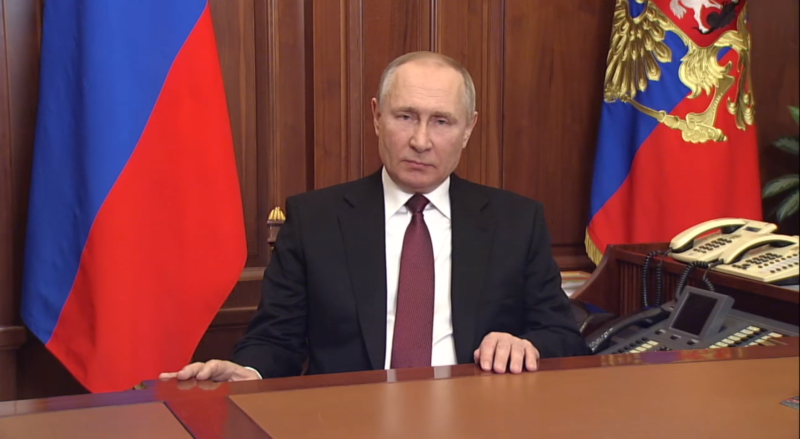
On 27 November 2023, Putin signed the 2024 Russian federal budget, allocating a substantial 36.66 trillion rubles ($412.5 billion) for state expenses, reflecting a notable 13% increase from the 2023 budget. Particularly noteworthy is the nearly 70% surge in defense spending for 2024 compared to 2023.
The second pivotal change involves Putin’s directive to strengthen the country’s military by an additional 170,000 troops, bringing the armed forces’ strength to 1.32 million.
These drastic measures suggest that Putin not only aims to escalate the war beyond Ukraine but perceives it as a geopolitical opportunity to reshape the current security landscape.
The efforts are directed at undermining the United States and its allies through an extended war of attrition. Simultaneously, there is a focus on inducing political destabilization in Western countries, as well as escalation of existing or emerging conflicts worldwide to divert the attention and resources of Western nations.
Additionally, the strategy includes leveraging humanitarian and immigration crises to exacerbate instability in Europe. Collectively, these tactics aim to weaken the geopolitical standing and resilience of the US and its allied nations.
Russia’s deepening ties with Iran and North Korea, particularly in the realm of ammunition and weapon trade, raises concerns about international security in general. The escalating activities of Iran, as highlighted in a report from the Chatham House, indicate efforts to destabilize the Middle East. This is further compounded by China’s growing influence both in Asia and globally.
In light of these geopolitical shifts, it becomes apparent why Putin might perceive a historical mission to restructure global security. The belief in restoring “historical justness” by occupying states and expanding influence aligns with Russia’s strategic interests in reshaping the world’s security paradigm.
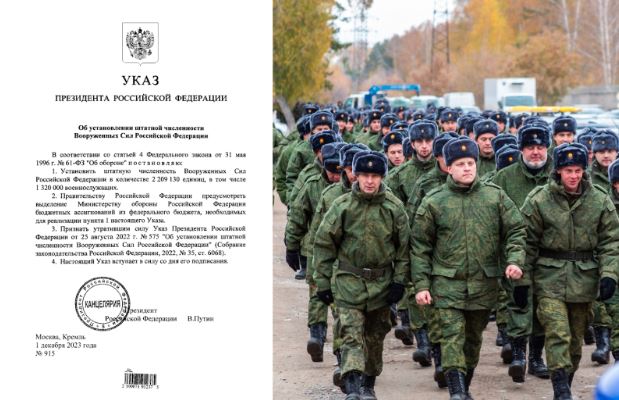
What are the objectives of Russia’s current geopolitical approach?
Unlike the Cold War period, when the world was divided into two major blocs and a group of neutral nations called the “Third World,” Russia isn’t trying to recreate a similar global security setup. This decision is based on the significant gap in economic, demographic, and technological development between Russia and the collective West.
According to the Carnegie Endowment, the goal is to move away from the established monopolar world order and work towards a multipolar system.
When Putin speaks about a more “just” world order, he is expressing revisionist ambitions that extend beyond the occupation and assimilation of Ukraine and Belarus into what he terms the triune Russian people — a concept that goes back to the Russian Empire.
His vision also includes the restoration, either fully or partially, of Russia’s sphere of influence, including many current EU and NATO members.
This ambition has been demonstrated through actions like Russia’s occupation of a part of Moldova in 1992, the invasion of Georgia in 2008, the annexation of Crimea, and the occupation of Donbas in 2014. The subsequent invasion of Ukraine in 2022 is a continuation of this pattern.
Moreover, these ambitions go beyond direct military conflicts.
Russia has been involved in sponsoring political parties in Europe, developing open relations with Hamas, interference in US elections, and assassination attempts on European Union soil.
Additionally, there are efforts to exploit the immigrant crises in Africa and Asia to destabilize the security posture and political environment. All these actions collectively pose a serious challenge and align with the plan Putin has openly claimed in his addresses.
Why are Putin’s elites complying?
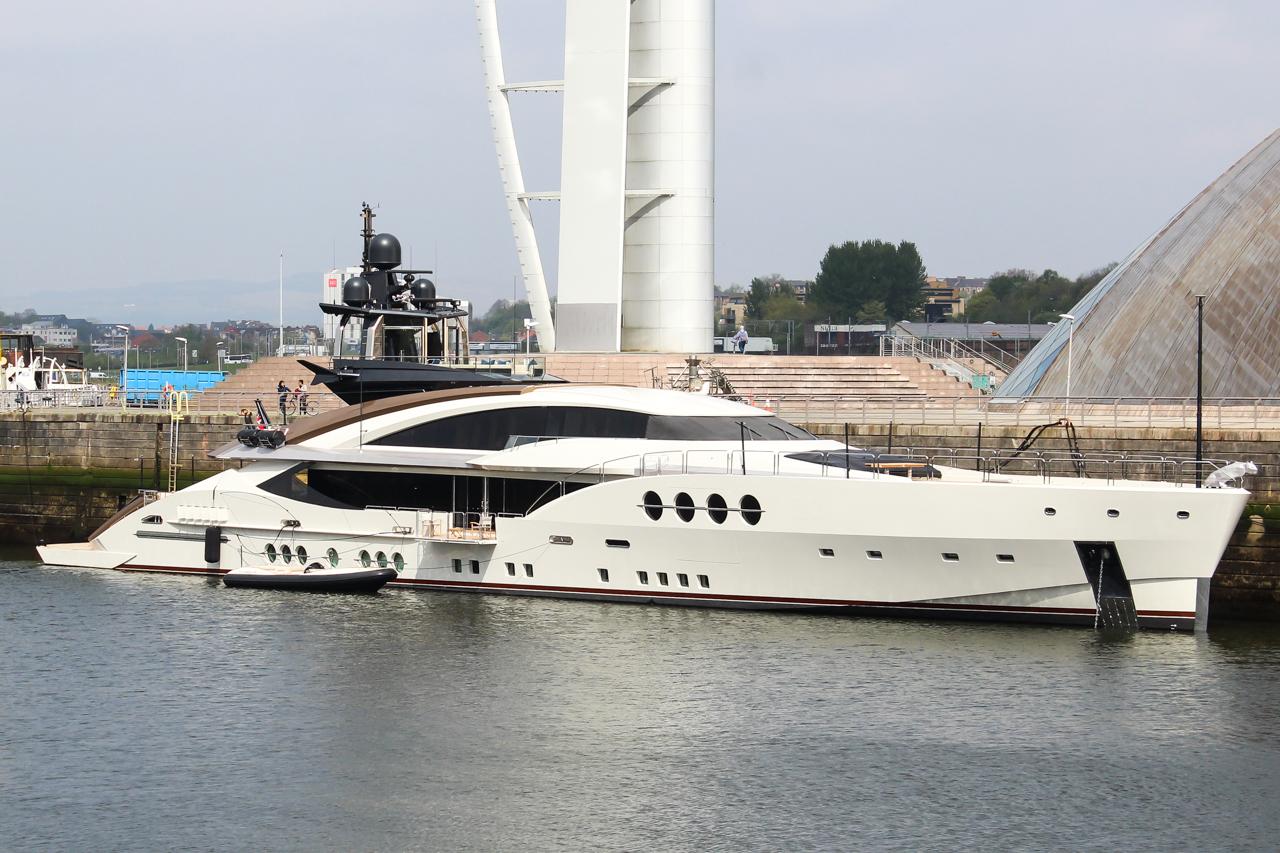
At the onset of the 2022 invasion, global headlines were reporting Russian oligarchs fleeing the country and their assets and bank accounts being frozen.
Nevertheless, contrary to popular expectations, data from the Bloomberg Billionaire Index reveals that Russia’s wealthiest oligarchs actually increased their wealth in 2023.
In the past year, G7 nations and the EU implemented a $60-per-barrel ceiling on crude oil to stabilize oil supplies and curtail the Kremlin’s war budget. However, as reported by Politico, traders are seemingly disregarding this price limit, with Russian oil selling at approximately $70 per barrel. Notably, around 48% of Russian oil cargoes were transported on tankers owned or insured by G7 and EU countries.
Certainly, sanctions have had an impact, as evidenced by CREA analysis. The study reveals substantial losses in Russian oil export revenues, reaching a peak of EUR 180 million per day in the first quarter of 2023. In January 2023 alone, Russia experienced a notable 45% month-on-month decline in overall fossil fuel revenues, with crude oil witnessing a 25% decrease.
However, the effectiveness of sanctions is tempered by various factors. Legal loopholes, a corruption network, and influential ties across European countries and politicians, coupled with a reluctance to sacrifice short-term economic gains for long-term security, enable Russia and its oligarchs to navigate around sanctions or mitigate the losses they incur.
Notably, in the second half of 2023, revenue losses diminished to EUR 50 million per day, marking a significant drop from the earlier EUR 180 million per day.
Regrettably, this sends a powerful message to Putin’s elites that, despite any delusional imperial ambitions he may harbor, they can still maintain and, in some cases, even increase their wealth.
What’s next?
Looking closely at Putin’s recent speech, it’s clear he’s more confident and willing to escalate the flames of war beyond Ukrainian borders. Dismissing his statements as just mere propaganda designated for internal consumption, as was done in 2021, would be a mistake.
As geopolitical tensions heighten, Putin openly challenges the established security structure that has prevailed since World War II and the Cold War aftermath. Whether the system is genuinely weakening or merely perceived as such by Putin, his decisions are fundamentally based on his perception. If he believes that challenging the West is feasible, he will persist.
The short-term focus of many elites, who often fail to plan or think beyond a single election cycle, provides an opportunity for dictatorial regimes in countries like Iran, China, North Korea, and Russia to challenge the existing economic, political, and security framework of the world. Further disruption and fragmentation seem inevitable if the collective West fails to unite and respond effectively to these threats.
Related:
- Unholy trinity, explained: How Kyiv priests created Russia’s imperial “Triune Rus” ideology
- Ukraine’s fate will determine future of global democracy, says Nicaraguan freedom champion




